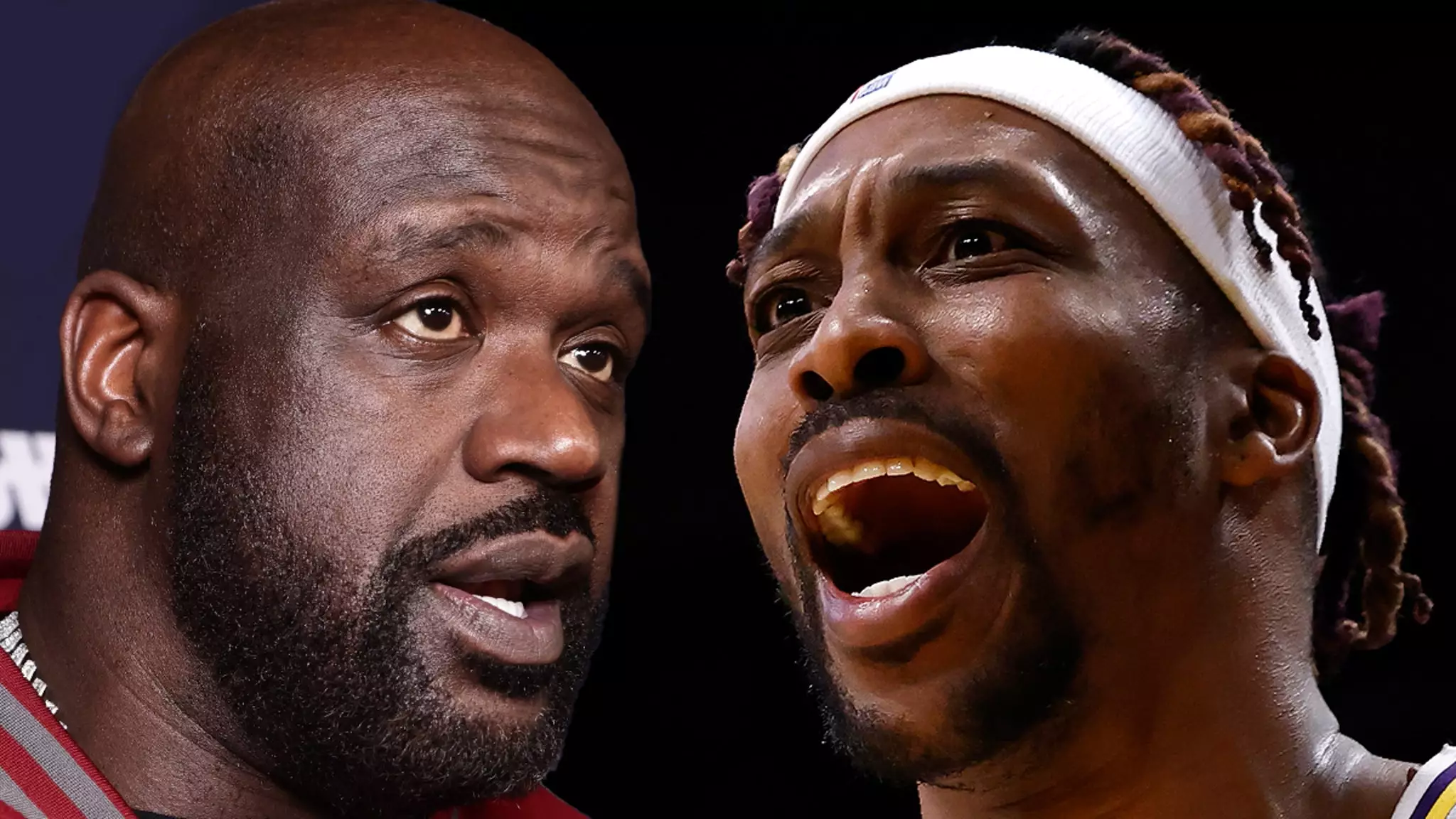The rivalry between Shaquille O’Neal and Dwight Howard has transcended the court, captivating basketball fans and analysts alike. Two giants of the game, their contentious relationship began primarily over namesake—the “Superman” moniker. This title, long associated with O’Neal’s dominating presence during his NBA tenure, became a point of contention as Howard adopted it for himself. Such rivalry reflects not only a battle for personal branding but also highlights the insecurities that legendary careers can evoke.
In the latest twist, O’Neal has declared himself finished with Howard, metaphorically “deleting” him from his life. In a recent social media tirade, O’Neal responded bluntly to comments made by Howard on a podcast. Howard, reminiscing on their tumultuous history, expressed frustration so potent that he considered confronting O’Neal in person to settle their disputes. O’Neal’s retort was caustic, dismissing Howard as “sensitive” and implying that their feud was trivial. Statements like “I never cared” and “Now you’re dead to me,” underscore O’Neal’s desire to signify a definitive end to their exchanges.
Howard’s reaction was far from passive. He accused O’Neal of harboring insecurities, suggesting that this long-standing rivalry was rooted in jealousy of Howard’s relationships with notable figures like Kobe Bryant and Dwyane Wade. Howard’s assertion about O’Neal being “too big” for insecurity suggests a broader narrative about how athletes often grapple with public perception, reputation, and legacy. As Howard brought up the concept of respect, it raised the question: what does respect really mean in the context of competitive sports?
Jealousy can be a powerful motivator, especially among elite athletes who often measure their success against one another. Howard’s proclamation about O’Neal’s envy reflects a familiar trope within sports culture, where past successes and accolades weigh heavily on current performance. The reiteration of past grievances on social media platforms is symptomatic of not only individual frustrations but also highlights how public discourse around these figures can amplify personal conflicts.
While O’Neal’s public statement suggest finality, the cyclical nature of rivalries in sports often leads to renewed back-and-forths. Does “deleting” someone truly equate to moving on, or is it merely an assertion of power in a relationship that has been public for over two decades? Similarly, Howard’s rebuttal implies that unresolved tensions linger beneath the surface, suggesting that true closure might remain elusive for both parties. As fans, we can only watch and wait — eagerly anticipating what the next chapter in this ongoing saga will reveal.

